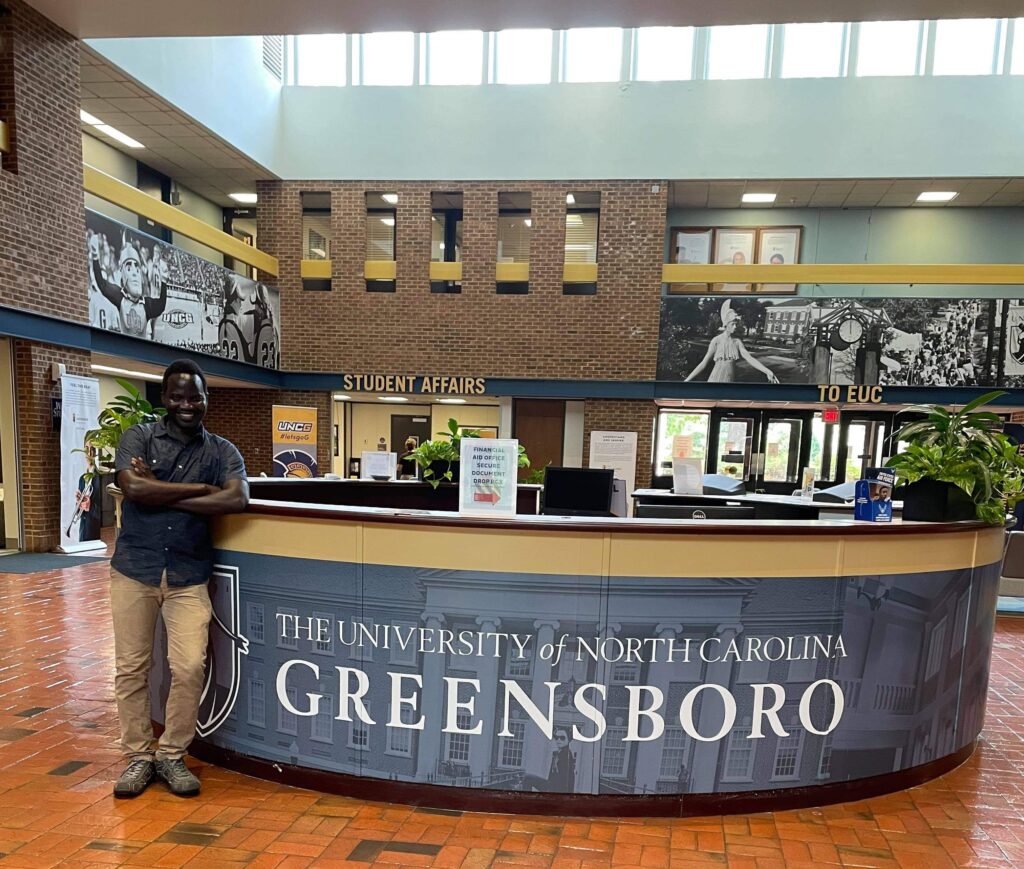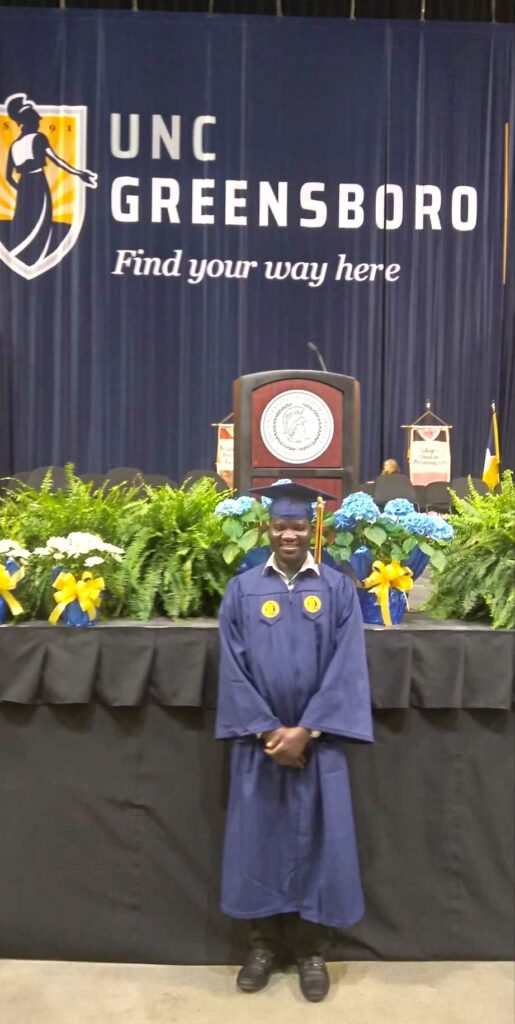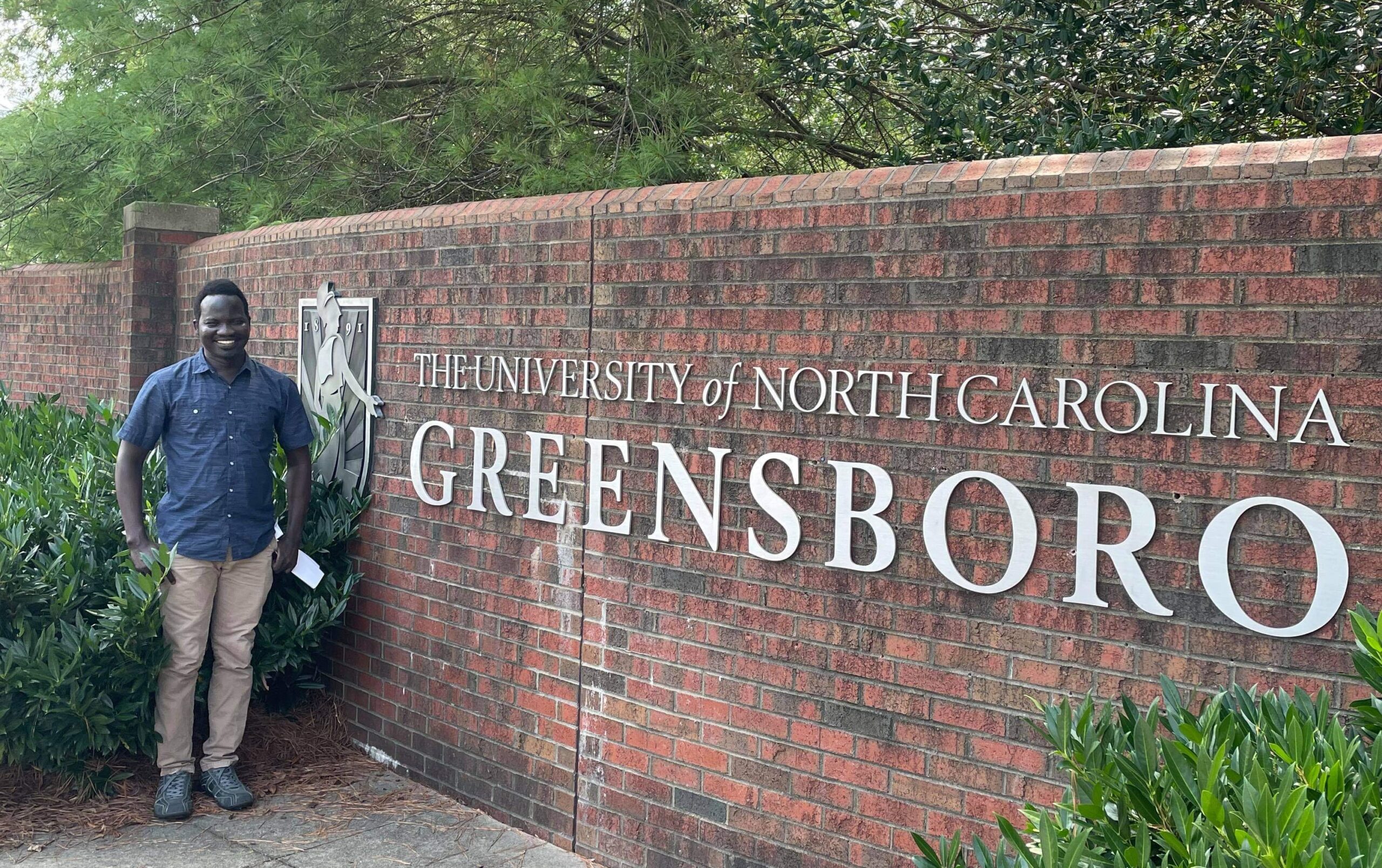Recent PCS graduate, Ojullu Omot’s story is one of resilience, perseverance, and hope. Born in Gambela, Ethiopia, Ojullu’s early life was marked by a harsh reality. Political instability, ethnic tensions, and the eventual massacre that ravaged his community forced him to flee his homeland at a young age. His ethnic group, the Anuak, became targets of government oppression, particularly after opposing policies that threatened to exploit the region’s resources.
In 2003, Ojullu’s life changed forever. On December 13, 2003, a peaceful day turned violent when an Ethiopian government crackdown following the killing of UN workers resulted in mass arrests and killings in his region. Soldiers targeted young men like Ojullu, tearing them from their homes and leaving a trail of destruction in their wake. Fearing for his life, Ojullu fled to the forest and then to South Sudan. “We thought we would return in a few weeks,” Ojullu recalls, “but we never did.”
Survival in Refugee Camps
For the next two years, Ojullu lived as a refugee in South Sudan, where he and other refugees faced constant insecurity. Rebel forces in South Sudan, often hungry and desperate, took food aid by force, leaving refugees to share already scarce resources. The fear of violence remained ever-present, even though direct attacks subsided. “The place was not safe. We could hear gunshots, and there was always tension,” Ojullu recalls.
After two years, Ojullu made the perilous journey to Kenya, seeking more stable refuge. In 2005, he arrived at the Kakuma refugee camp, where he would spend the next eleven years of his life. Life in Kakuma was a continual struggle, but there was a sense of community among the refugees. He underwent numerous interviews to gain formal refugee status. By 2013, Ojullu’s journey to resettlement began when his name appeared on a notice board for potential relocation to the United States.
A New Beginning in the United States
In April 2016, after years of waiting, Ojullu finally set foot in the United States, arriving in Miami before moving to North Carolina. The initial excitement of reaching America quickly faded as he grappled with the realities of his new life. The isolation and unfamiliarity of his surroundings made him question his decision to leave Kenya. “I didn’t feel comfortable here,” Ojullu reflects. “The environment was not conducive for me. I felt homesick.”
Despite the challenges, Ojullu found work and began attending English as a Second Language (ESL) classes to improve his language skills. He faced many obstacles, including adapting to American life, adjusting to the cold weather, and navigating the educational system. Still, Ojullu remained determined to further his education. He completed his GED and enrolled in Forsyth Technical Community College, where he majored in criminal justice.

The Path to Peace and Conflict Studies at UNCG
During his time at Forsyth Technical Community College, Ojullu’s academic path took a new turn. Encouraged by a professor and later by contacts at Wake Forest University, he learned about the Peace and Conflict Studies (PCS) program at the University of North Carolina at Greensboro (UNCG). Inspired by his personal experiences in refugee camps and his desire to help his community, he decided to pursue a degree in PCS after receiving his associate degree from Forsyth Tech.
In 2021, Ojullu enrolled at UNCG. Balancing full-time work with his studies, he found the PCS program both challenging and rewarding. “Time was always a challenge,” Ojullu recalls. “But the program gave me the skills to understand conflict, engage with others, and envision peaceful solutions.” His studies helped him to reflect on his past and how he could use his education to make a difference in conflict-affected regions like his homeland.
Ojullu’s experiences with peacebuilding workshops in refugee camps, where he learned how to mediate conflicts and foster dialogue among different groups, closely aligned with the principles of his Peace and Conflict Studies degree. He realized that the knowledge and skills he gained at UNCG could help him in the United States as well as back home in Ethiopia. “This degree is a real advantage,” Ojullu says. “It has taught me how to listen, respect different cultures, and understand the importance of dialogue in conflict resolution.”
Looking to the Future
While Ojullu’s journey to the United States may have been filled with unexpected challenges, his determination to make a difference has only grown stronger. His goal now is to use his education to help resolve the conflicts that have plagued his homeland. Whether working remotely with international organizations or returning to Ethiopia, Ojullu remains committed to promoting peace and understanding.
Though his work today is not directly related to his studies, Ojullu is optimistic that the skills he has learned will eventually lead him to a career in peacebuilding. “I’ve applied to organizations that focus on refugee assistance, but I haven’t found the right opportunity yet,” he says. “But I know this degree will help me in the future—whether it’s here or in Ethiopia.”
Ojullu’s journey is a testament to the resilience of the human spirit. From fleeing violence in Ethiopia to building a new life in the United States, his story illustrates the power of education, determination, and hope for a better future.
To learn more about Ojullu’s story check out this excellent video produced by friends at Every Campus a Refuge (ECAR) in coordination with Wake Forest University’s Department of Communications.

